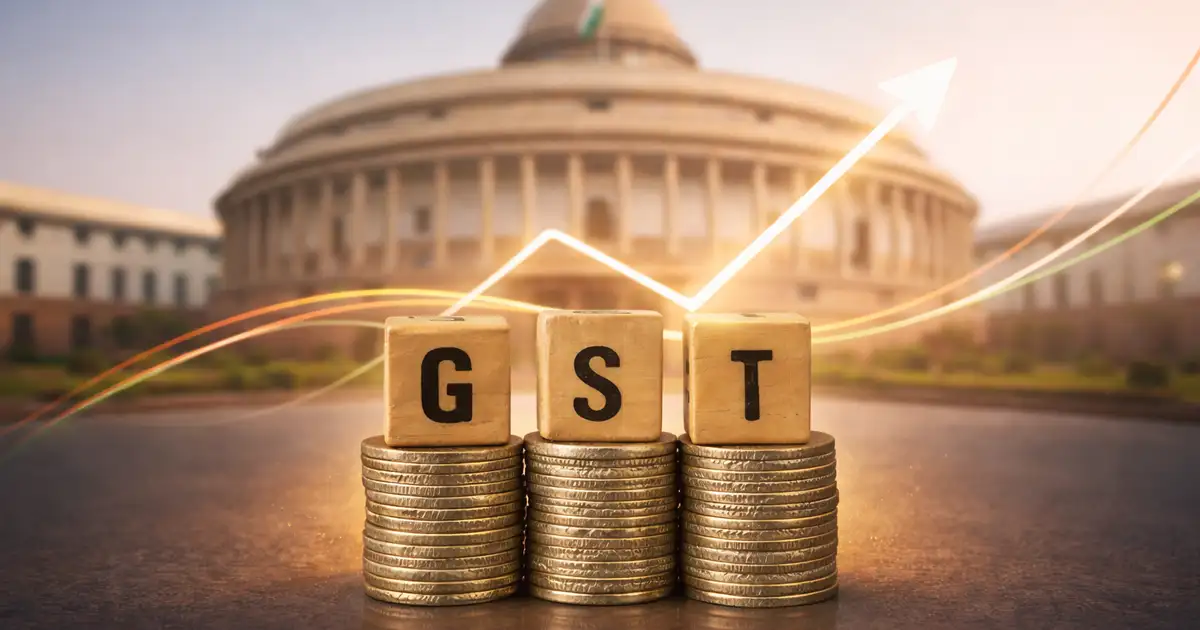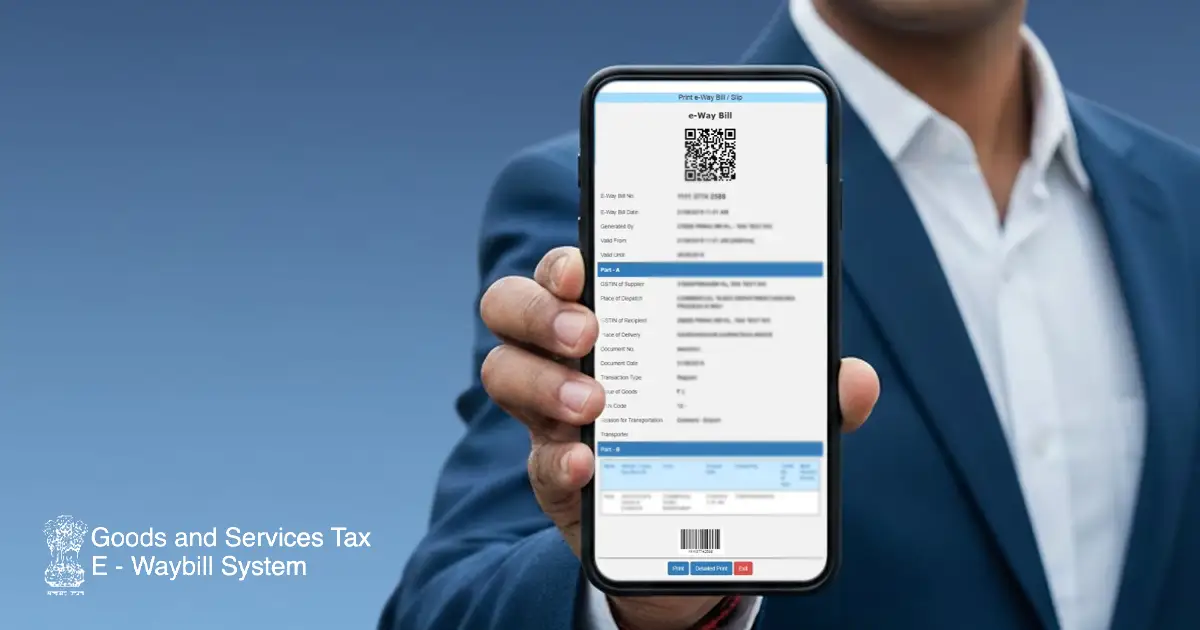
The GST on refrigerators in India is currently set at 28%, making it one of the most heavily taxed home appliances. If you’re planning to buy a new refrigerator, knowing the refrigerator HSN code and GST implications will help you make informed decisions.
This guide breaks down everything you need to know about the refrigerator GST rate in India—from the current tax rate in 2026 and price impact to how it compares with pre-GST taxation. Let’s start with an interesting fact known to few consumers in India.
Did you realize?
When GST was not applied, taxes on refrigerators added up to between 31 and 32%. Thanks to the new GST, the overall tax paid by consumers has decreased slightly.

The Goods and Services Tax (GST) on refrigerators stands at 28% across India. This rate applies to all types of refrigerators, including single-door, double-door, and multi-door variants. The GST on fridge remains uniform whether you purchase from online platforms or physical stores.
The government classifies refrigerators under the luxury goods category. Therefore, they attract the highest GST slab of 28%. This rate includes both Central GST (CGST) and State GST (SGST) components.
The GST system categorizes the refrigerator as HSN code 84182100. HSN, which is short for Harmonized System of Nomenclature, makes taxing items more uniform. Tax filing requires that every refrigerator manufacturer and seller use this allocated code.
Boundary 5214 applies to household refrigerators that have separate doors on the outside to get to their freezers. Thanks to the code, taxes are calculated evenly, and everyone maintains compliance.
The 28% GST on a refrigerator gets divided as follows:
- CGST: 14%
- SGST: 14%
- Total: 28%
Whenever the transaction takes place between two states, IGST of 28% is applied in place of both CGST and SGST. It doesn’t matter if you buy toilet paper or a TV; the tax charge is always the same.
- Budget refrigerators (₹15,000-25,000) see a tax impact of ₹4,200-7,000 approximately.
- Mid-range models (₹25,000-50,000) attract GST of ₹7,000-14,000.
- Premium refrigerators above ₹50,000 can have GST exceeding ₹14,000.
How is GST Calculated on Refrigerators?
Calculating GST on refrigerator purchases is straightforward. First, identify the base price excluding taxes. Then, multiply the base price by 28% to get the GST amount.
For example, if a refrigerator costs ₹30,000 (base price), the GST would be ₹8,400. The total price becomes ₹38,400, including taxes.
When you check a refrigerator purchase invoice, you’ll see the HSN code 84182100 there. To help with transparency, the invoice separates CGST from SGST. Confirm these details if you want to link input tax credit to your claim.
Here is a sample invoice for your reference:
GST on Different Types of Refrigerators
Understanding the GST implications across various refrigerator categories helps consumers make informed purchasing decisions and budget accordingly for their home appliance needs.
Single-door refrigerators attract the standard 28% GST on refrigerator rate. These entry-level models typically range from ₹12,000 to ₹25,000. The GST component adds ₹3,360 to ₹7,000 to the final price.
Manufacturers use the same refrigerator HSN code 84182100 for single door variants. The tax calculation remains identical across all brands and models.
Premium double door and multi-door refrigerators also face 28% GST. These models usually cost between ₹25,000 to ₹1,50,000 or more. The higher price directly increases the absolute GST amount.
Side-by-side and French door refrigerators follow the same refrigerator HSN code. The GST burden can reach ₹42,000 or more for premium models.
Understanding the GST implications across various refrigerator categories helps consumers make informed purchasing decisions and budget accordingly for their home appliance needs.
The 28% GST on refrigerators significantly impacts consumer purchasing decisions. Many buyers delay purchases or opt for smaller capacity models. The high tax rate makes refrigerators less affordable for middle-class families.
On the other hand, having GST as a single system means there are now less taxes and it’s easier to comply. In the past, the sum of excise duty, VAT and similar levies was very close to the current GST.
Refrigerator manufacturers have adjusted their pricing strategies post-GST implementation. Some brands offer attractive financing schemes to offset the tax impact. Online retailers frequently provide GST-inclusive pricing for better transparency.
The uniform refrigerator HSN code application has streamlined inventory management. Dealers can now focus more on customer service rather than complex tax calculations.
Registered businesses can claim input tax credit on refrigerator purchases. The GST on the refrigerator becomes recoverable if used for business purposes. This benefit significantly reduces the effective cost for commercial buyers.
Hotels, restaurants, and offices can claim full credit using the refrigerator HSN code documentation. Proper invoice maintenance ensures smooth credit claims during GST filing.
Only GST-registered entities can avail input tax credit benefits. The refrigerator must be used for business activities, not personal consumption. Maintaining proper records with refrigerator HSN code details becomes crucial for compliance.
Here’s the good news – no matter which state you’re shopping in, you’ll pay the same GST rate on your refrigerator!
| Aspect | Details |
| GST Rate | 28% uniform across all Indian states |
| State Variations | None, completely standardized nationwide |
| Interstate Trade | Simplified pricing and trade between states |
| Previous System | Different VAT rates caused price disparities across states |
| Current Benefit | Fair pricing regardless of where you buy |
Wondering how refrigerator GST stacks up against other appliances you might be buying? Here’s how the tax burden compares across different home essentials and luxuries.
| Appliance Category | GST Rate | HSN Code | Government Classification | Price Impact Example |
| Refrigerators | 28% | 84182100 | Luxury/Premium | ₹50,000 → ₹64,000 |
| Air Conditioner | 28% | 84151000 | Luxury/Premium | ₹40,000 → ₹51,200 |
| Washing Machines | 28% | 84501200 | Luxury/Premium | ₹30,000 → ₹38,400 |
| Water Purifiers | 18% | 84212100 | Essential | ₹15,000 → ₹17,700 |
| Microwave Ovens | 28% | 85165000 | Luxury/Premium | ₹20,000 → ₹25,600 |
| Electric Fans | 12% | 84145100 | Essential | ₹3,000 → ₹3,360 |
| LED Lights | 12% | 85395000 | Essential | ₹500 → ₹560 |
| Consumer Response | Reason | Alternative Options | Trade-offs |
| Shift to mini-fridges | Lower absolute GST amount | Smaller capacity models | Limited storage, frequent restocking |
| Consider import options | Potential exemptions available | Imported models with duty benefits | Complex paperwork, higher shipping costs |
| Delay purchases | Wait for price drops or sales | Festival season shopping | Living without refrigeration longer |
| Choose domestic brands | Better warranty and service | Local manufacturing benefits | Still pay same 28% GST rate |
| Opt for exchange deals | Trade in old appliances | Limited to the available exchange value | Still pay the same 28% GST rate |
| Tax Category | Government Intent | Consumer Perception | Market Reality |
| 28% GST Items | Luxury/discretionary spending | High-end lifestyle products | Basic necessity for food storage |
| 18% GST Items | Semi-essential category | Reasonable tax burden | Health and safety focused |
| 12% GST Items | Essential/basic needs | Affordable and accessible | Daily use necessities |
Nobody likes paying more than they have to, so here are some practical ways to make your refrigerator purchase easier on your wallet while staying on the right side of GST rules.
- Shop during festival sales: This is when you’ll find the best deals! Many stores include GST in their already-discounted festival prices, so you get more bang for your buck.
- Wait for year-end clearances: December and January are goldmines for appliance shopping. Retailers want to clear inventory, and those lower prices help offset the GST sting.
- Don’t ignore exchange offers: Got an old refrigerator gathering dust? Exchange deals can knock down your effective purchase price and make that GST more bearable.
- Budget for the full picture: When you see a ₹50,000 refrigerator, remember you’re actually paying ₹64,000 after GST. Add installation, extended warranty, and future maintenance to get your true cost.
- Shop around like your wallet depends on it: Different retailers have different pricing strategies. What looks expensive at one store might be a steal at another.
- Get proper paperwork: Make sure your bill clearly shows the HSN code 84182100. Trust me, you’ll need this for warranty claims and if you ever decide to sell.
Understanding GST on refrigerator purchases is just one aspect of GST compliance. Whether you’re a business owner selling appliances or need GST registration services, RegisterKaro simplifies the entire process for you.
- Expert GST registration assistance within 24 hours.
- Complete documentation support with proper refrigerator HSN code guidance.
- Ongoing compliance management and filing support.
- Transparent pricing with no hidden charges.
Ready to streamline your GST compliance?
Contact RegisterKaro today for professional GST registration and compliance services.
Frequently Asked Questions
The GST on refrigerators is currently 28% across India. This rate applies to all types of refrigerators, including single-door, double-door, and multi-door variants.




